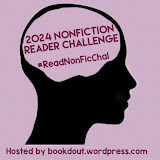In the beginning, this search had me reading an average of 10 Young Adult (YA) titles a month. I did this initially so that I could offer sound recommendations to my students and help them avoid the pitfalls of the many copy-cat texts which followed the vampire-werewolf-district-faction phenomena. Somewhere along the way I found I was enjoying these texts just as much as my students, and I'd like to share with you the reason I like YA fiction.
I believe the reticence of some teenagers today stems not from apathy or ignorance, but rather from the fact that the number and scope of the issues requiring their attention are overwhelming. It's for this reason that YA fiction, and dystopian fiction in particular (more about that later), has exploded in popularity over the last ten years. YA fiction provides adolescents and young adults with direction; if a young protagonist can overthrow a government, then they too can face the problems of their world.
In my opinion, the continual rise of YA fiction can also be attributed to the fact that protagonists give readers a voice. This is true of all protagonists, but as Graham F. Scott at Canadian Business says, YA fiction capitalises on the seemingly endless resource that is teenage angst. While this trivialises the causes of that angst, he has a point; adolescence hits us all with a wonderful cocktail of physical, emotional and social confusion, one which often requires help to understand and negotiate. Enter the army of adolescent protagonists whose brave life-choices, embarrassing love-lives and fierce battles for freedom provide the reader with one recurring message: It will get easier. Even better than the message itself, readers are clearly educated that nothing gets easier without effort, resilience and a clear sense of purpose.
I appreciate the ways in which protagonists work to overcome the challenges of a world usually thrust upon them by an older, wealthier or more well-armed society. My students appreciate that the perspective of an adolescent is valued, even privileged, rather than ignored. As a result, teaching and learning is improved because I can prepare teenagers for a world needing their attention, rather than assuming ignorance (not that I would!).
Parents should certainly engage with the books their children read; a frank discussion about a YA character and his/her actions might allay many of the fears we parents have about our children’s choices. It's worth noting that few YA titles present alcohol, drugs or teen pregnancy as the main issues facing adolescents. Driving and digital communication are still presented as pitfalls, but the issues which occupy the average YA protagonist’s mind are identity, freedom (intellectual and physical), tolerance and purpose. I find that reassuring.
As a genre, YA fiction should not be dismissed out of hand. A younger character voice is just as authentic, and their challenges just as real. Sure, there are some dreadful YA novels out there, but that’s true of any genre. My tip: befriend a teenage reader - they’ll steer you right, and will appreciate that you cared enough to ask.
I'll be back to Carpe Librum soon to share some of my favourite YA novels, but until then, you can have a sneak peak at some of my recommendations here.
 |
| Guest blogger, Whitney McCarthy |
Whitney is the Head of English at Downlands College in Toowoomba, QLD and divides her time between school and her children, who spend more time dancing than at home.
She is currently working towards a Masters of Education (Literacy and Language learning) at University of Queensland.
She is currently working towards a Masters of Education (Literacy and Language learning) at University of Queensland.











































